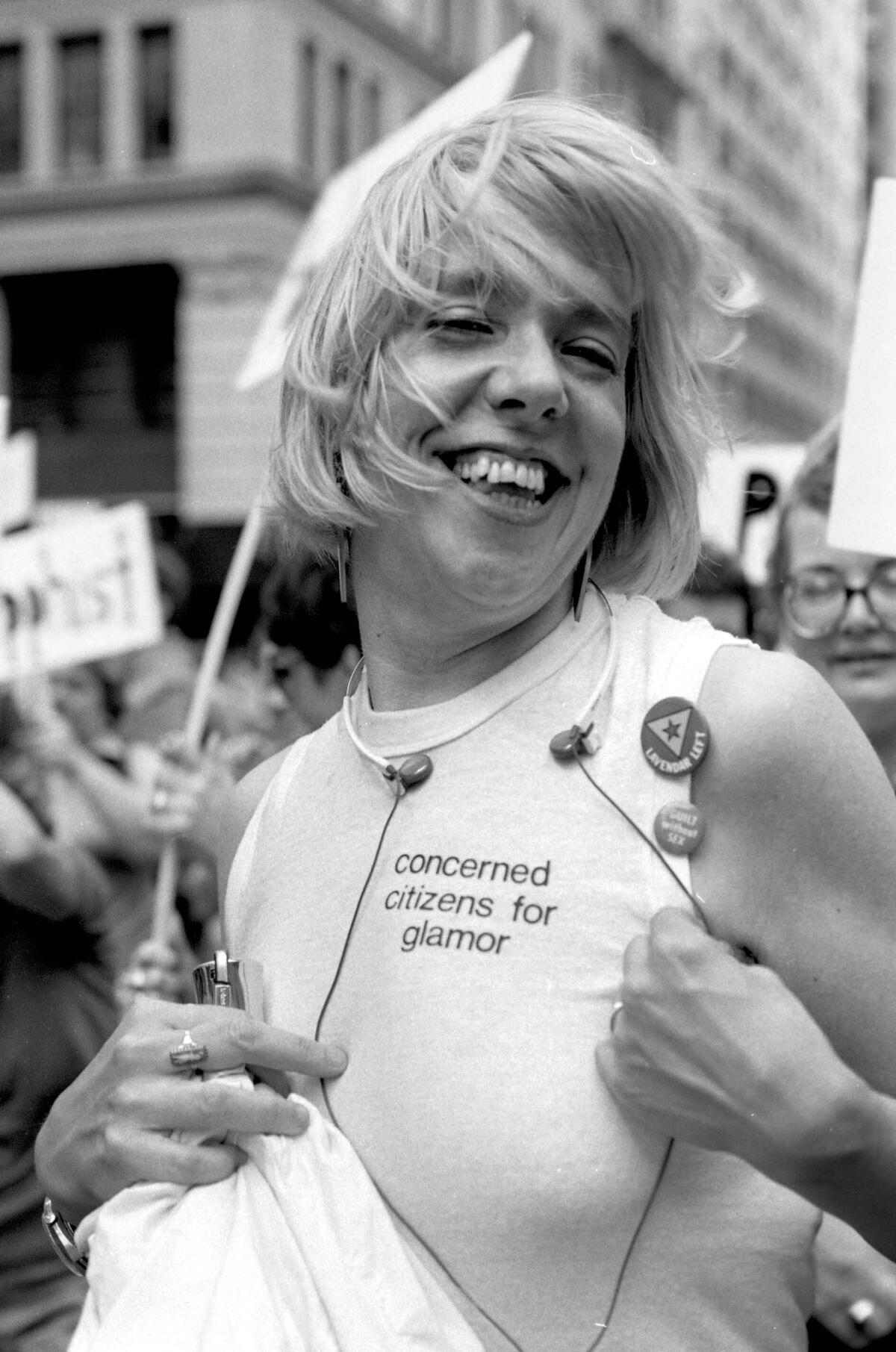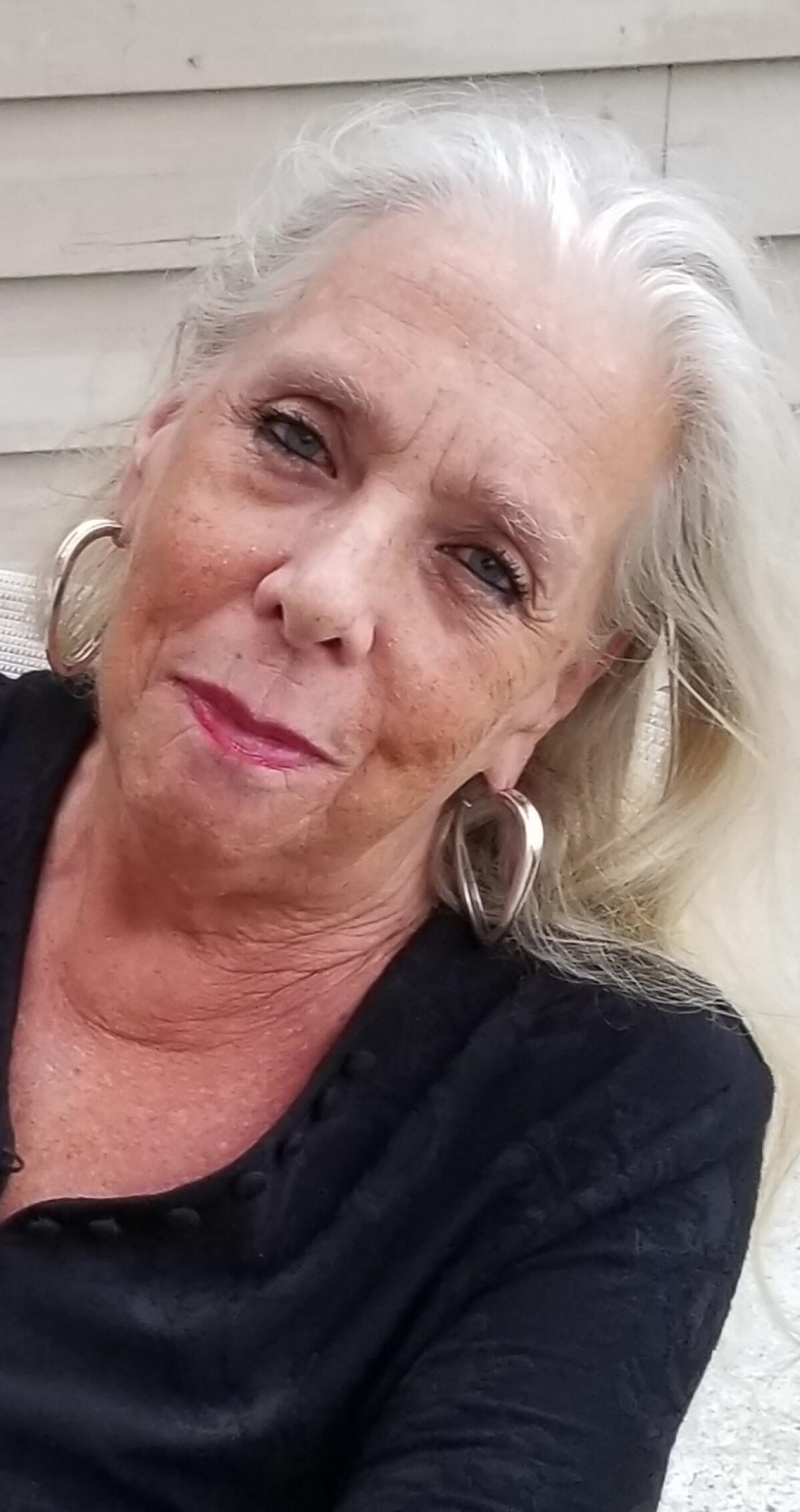Amber Hollibaugh, radical LGBTQ+ activist and rights advocate, dies at 77

- Share via
Amber Hollibaugh, a vocal advocate for LGBTQ+ rights over the last five decades, died last month at the age of 77.
A former sex worker and self-described Marxist feminist, Hollibaugh was active in a number of LGBTQ+ organizations, including the National Gay and Lesbian Task Force, the Gay Men’s Health Project and the group Queers for Economic Justice, which she co-founded.
“Amber really pushed our movement to go beyond where it was,” said Roberta Sklar, a fellow activist who worked alongside Hollibaugh for more than 30 years. “She could see a need where other people didn’t see it.”
Hollibaugh was born June 20, 1946, to a poor working-class family in Bakersfield. She had a difficult childhood, and was the victim of incestuous abuse. After graduating high school, she moved out of her parents’ home and supported herself working odd jobs, including sex work, and eventually settled in San Francisco in the late 1970s.
“From the very beginning I got a tremendous sense of her confidence. I mean there was a boldness to her,” said John D’Emilio, a retired professor at the University of Illinois at Chicago and pioneering queer historian who met Hollibaugh when they both lived in San Francisco.
Hollibaugh first became involved with LGBTQ+ activism by joining the grassroots campaign against the Briggs Initiative, a 1978 ballot measure that sought to ban queer people from working in public schools. She spent the months leading up to the election traveling to small towns in Central and Northern California, going door to door to discuss the issue. D’Emilio said she was often the first out lesbian to speak with the people she met.
“Amber, who came from a poor working-class family, was a part of those early efforts,” recalled the LGBTQ+ rights and AIDS activist Cleve Jones. “She was extremely outspoken, a very vivid character, very charismatic, and smart and tough and unapologetic.”
Following the sentencing of Dan White, the former member of the San Francisco Board of Supervisors who assassinated colleague Harvey Milk — one of the nation’s first out gay elected officials — and San Francisco Mayor George Moscone in 1978, Hollibaugh participated in the march from the Castro District to San Francisco City Hall, which erupted into a riot in part because of her speech from the steps of City Hall.
“She was not willing to accept any form of inequality or oppression that she encountered or observed in society,” D’Emilio said. “She thought about it, she spoke out against it, and she tried to rouse you to do the same.”

A couple of years later, Hollibaugh moved to New York City, her primary residence for the rest of her life. She worked on a variety of initiatives, from marriage equality and HIV/AIDS health services to assisting queer elders and providing counseling to LGBTQ+ homeless people.
“That’s what Amber does, she makes broken people whole, or at least leads them to wholeness,” Sklar said.
It was in New York that Hollibaugh met the novelist Jenifer Levin, her partner for the last 25 years of her life. Levin first learned of Hollibaugh from a column she wrote called “Femme Fables” in New York Native, an LGBTQ+ publication. Her essays were eventually collected and published in 2000 under the title “My Dangerous Desires: A Queer Girl Dreaming Her Way Home,” which was awarded the Publishing Triangle Judy Grahn Award for Lesbian Nonfiction.
“What I found with her was extraordinary wisdom, profound friendship and a very deep capacity for commitment,” Levin said.
Though she retired in 2011 and suffered deteriorating health due to Type 1 diabetes, Hollibaugh remained connected to the LGBTQ+ scene until the end of her life. In 2018, she gave the keynote lecture after receiving the David Kessler Award from the Center for LGBTQ Studies at the City University of New York. She was also prominently featured in the 2022 documentary “Esther Newton Made Me Gay.”
Hollibaugh died Oct. 20 due to complications from diabetes. She is survived by Levin and her two stepsons.
More to Read
Start your day right
Sign up for Essential California for the L.A. Times biggest news, features and recommendations in your inbox six days a week.
You may occasionally receive promotional content from the Los Angeles Times.







